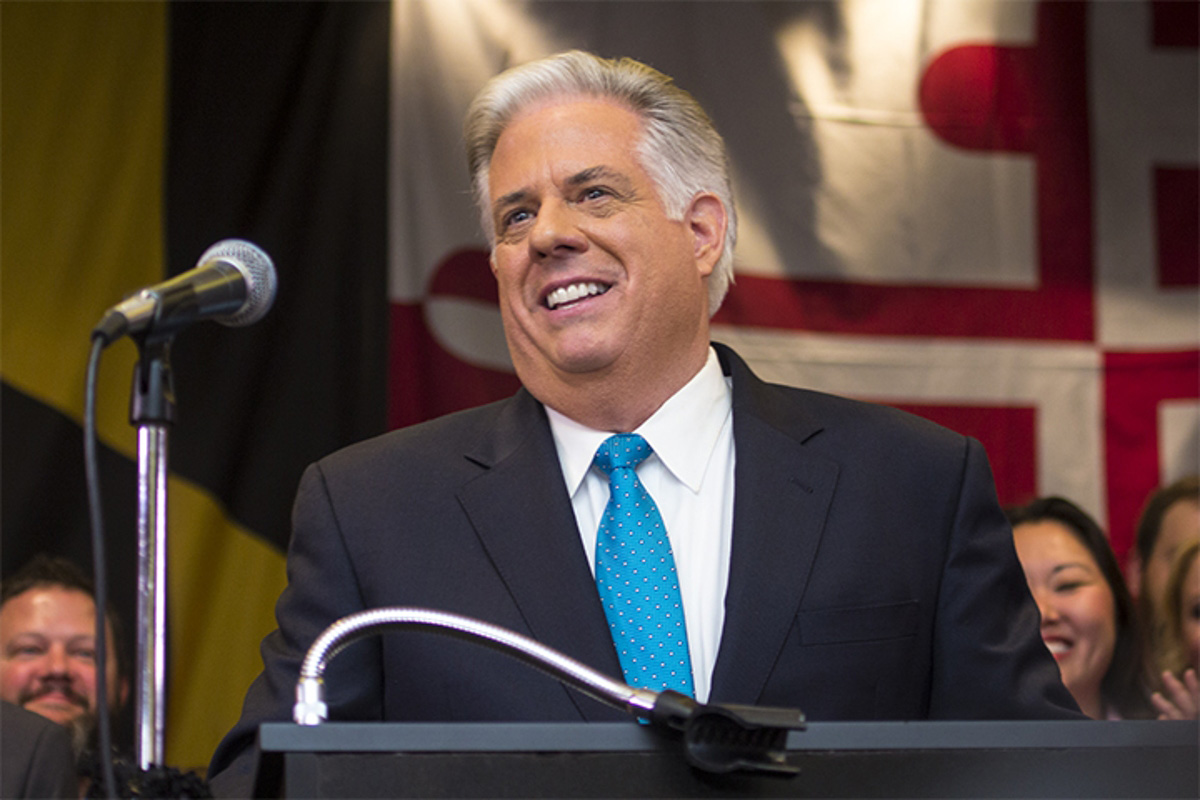Maryland Gov. Larry Hogan signed an executive order to reaffirm the state’s economic and cultural partnership with Israel, according to a Monday news release.
The order prohibits “all executive branch agencies from entering into contracts or conducting official state business with any entity unless they certify that they will not engage in a boycott of Israel during the duration of the contract.”
The governor also called on the Board of Trustees of the Maryland State Retirement and Pension System to divest from any companies with investment ties to the Palestinian-led Boycott, Divestment and Sanctions movement, the press release said.
[Read more: Pro-Palestine student group wants UMD to boycott companies that promote “Israeli occupation”]
Founded in 2005, the BDS movement encourages the withdrawal of support from Israeli businesses to protest the nation’s actions toward Palestinians.
“Israel is a robust democracy with many rights and freedoms that don’t exist in neighboring countries, or across much of the world,” Hogan said in the press release. “The shameful BDS movement seeks to undercut those rights and freedoms, using economic discrimination and fear.”
Zakariya Uddin, vice president of the University of Maryland’s Students for Justice in Palestine, said Hogan’s order restricts consumers’ freedom of choice.
“Primarily there’s an issue with the fact that [Hogan is] calling for a boycott in support of equality and protection of rights, but that in reality limits our ability as businesses and consumers and such to make our own decisions,” the sophomore sociology major said.
[Read more: Jewish groups show support for a former UMD professor after her contract wasn’t renewed]
“BDS is very much targeted toward the state of Israel’s actions in violation of human rights and has no intention or desire to target people on the basis of their ethnicity, national origin or race or religious beliefs,” Uddin said.
Terps for Israel political chairwoman Hannah Kark said her organization “100 percent supports” Hogan’s order.
“As an organization, we believe that BDS generally would deepen the rift between Israelis and Palestinians and is both harmful to Palestinians and Israelis … we don’t believe that it is the proper way for this issue to be resolved,” the sophomore government and politics and public policy major said.
In 2016, Hogan led a trade mission to Israel for a delegation of state officials, business leaders and Jewish community leaders. In May, Hogan joined the other 49 governors in signing a pledge against BDS.
Though the statement, organized by the American Jewish Committee, didn’t commit the governors to specific actions, it declares “the goals of the BDS movement are antithetical to our values and the values of our respective states, our support for Israel as a vital U.S. ally, important economic partner and champion of freedom,” the Jewish Telegraphic Agency reported.



